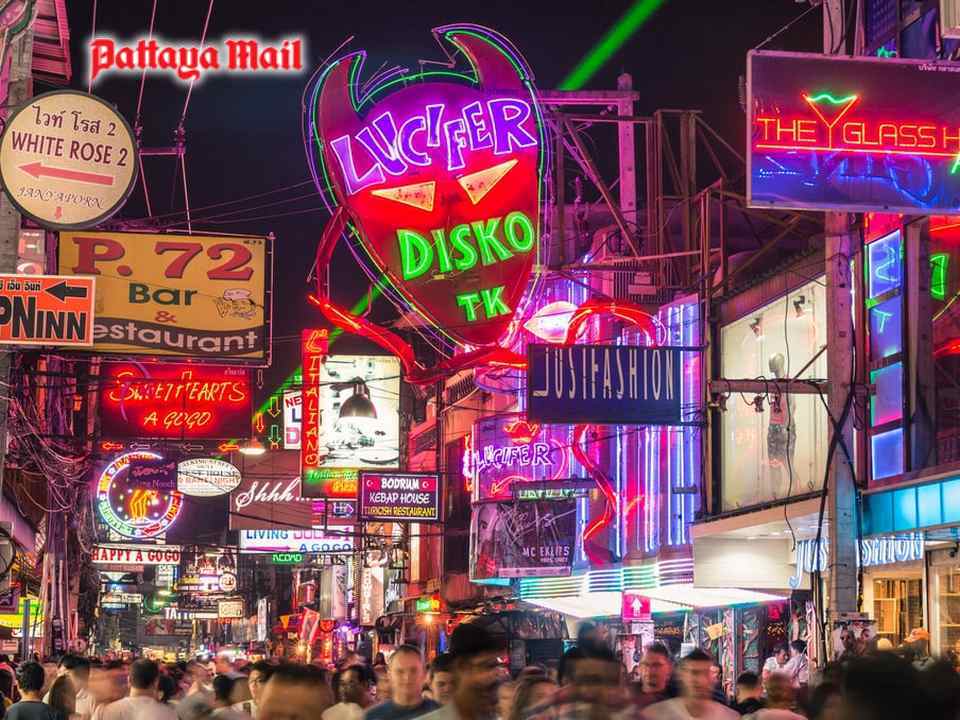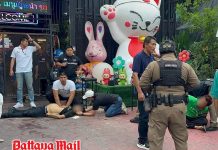
Catching nearly everyone by surprise, the Center for Covid-19 Situation Administration said it would debate allowing Thailand’s nightlife industry to reopen fully and legally. When, however, remains the question.
While the majority of bars already have reopened as “restaurants” thanks to dodgy licenses and outright bribes to officials, the industry remains stunted, with the largest clubs still closed and other venues, such as go-go bars, operating without dancing.
The CCSA’s operations committee is set to meet Thursday, with nightlife tentatively on the agenda. Should the committee approve the idea, the measure would be debated by the full CCSA Friday.
Bars and nightlife were supposed to reopen legally Jan. 15, but the onset of the coronavirus omicron variant wave scuttled that plan. With Thailand reporting more than 46,000 new Covid-19 cases today – both confirmed RT-PCR and antigen tests – it’s unlikely the CCSA will approve any immediate reopening.
More likely it will be two or three months before the handcuffs come off. And when they do, expect operating and health restrictions to be so onerous that going clubbing won’t be much fun … if they are enforced, of course.
A Public Health Ministry committee on March 10 approved a pandemic “transition” roadmap to declaring Covid-19 an endemic disease on July 1.
The timeline depends on Thailand hitting various milestones, none of which look in range at the moment. New daily cases would have to drop to 1,000-2,000 and the fatality rate to about 0.1%. Currently, the fatality rate is at 0.19% in Thailand.
Yet, after earlier predicting daily cases could hit 100,000 by mid-April, officials are now saying cases should start to decline in the second half of this month.
The National Communicable Disease Committee, however, says the current first phase of the transition, which is slated to last through early April, still is considered an “upward trend” in the omicron wave during which strict controls must continue.
The second phase, from April to May, will see Covid-19 spreading widely. The third phase, from late May to June, will be when the infection rate slows, the committee predicted. Finally, from July 1, Covid-19 will be declared endemic.
Ministry Permanent Secretary Kiattiphum Wongrajit said bars and clubs shouldn’t be allowed to reopen legally until the third phase, in late May to June.
Sanga Ruangwattanakul, president of the Khao San Business Association, said nightlife business owners nationwide want the industry reopened now, after being “closed” since April, although little on Khao San Road actually is closed.
He said the backpacker district turned Thai youth hangout attracts 1,000-2,000 people on weekdays and 5,000-6,000 weekends. He expects that to double if the CCSA allows alcohol sales to continue until midnight or 1 a.m. and bars to operate without restrictions.
That is hard what Thailand’s health nannies, scared of any group gatherings, want to hear. It’s why when nightlife does reopen fully again, it will be under a pile of onerous restrictions similar to those drafted before bars reopened in July 2020 after the 3 ½-month lockdown.
- All staff and customers must be triple vaccinated (unless the second dose came within the past three months.
- All staff must take a Covid-19 antigen test every three days.
- Customers must have passed an antigen within 24 hours.
- No dancing.
- No bottle service.
- No parties or promotions.
- No hostesses and no staff sitting with customers.
- No shows or similar.
- No toilet attendants.
- SHA+ and Stop Covid Plus certifications required.
If these rules sound familiar, it’s because the government tried to impose rules 4, 5, 6, 7 and 8 in July 2020. They were enforced for about a minute.
It’s notable that bottle service is already available in most bars, so forget enforcing that. And, other than on Khao San Road and, for a few weeks in Pattaya and on Soi Cowboy, there has been no enforcement of rules requiring customers to take antigen tests.
All of these, of course, are just proposals and speculations. What the CCSA ultimately decides to do – or postpone doing – remains to be seen.
The original version of this story appeared in the Bangkok Herald, a Pattaya Mail partner.
 |
 |
 |





